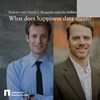valuate
Applying spatial regression to evaluate risk factors for microbiological contamination of urban groundwater sources in Juba, South Sudan
Hydrogeology Journal 25(4) pp. 1077-1091, doi: 10.1007/s10040-016-1504-x Abstract This study developed methodology for statistically assessing groundwater contamination mechanisms. It focused on microbiahumanitarian aid organisation Médecins Sans Frontières in 2010. The factors included hydrogeological settings, land use and socio-economic characteristics. The results showed that the residuals of a conventional probit regression model had a significant positive spatial autocorrelation (Moran’s I =3.05, I-stat = 9.28); therefore, a spatial model was developed that had better goodness-of-fit to the observations. The mostsignificant factor in this model (p-value 0.005) was the distance from a water source to the nearest Tukul area, an area with informal settlements that lack sanitation services. It is thus recommended that future remediation and monitoring efforts in the city be concentrated in such low-income regions. The spatial model differed from the conventional approach: in contrast with the latter case, lowland topography was not significant at the 5% level, as the p-value was 0.074 in the spatial model and 0.040 in the traditional model. This study showed that statistical risk-factor assessments of groundwater contamination need to consider spatial interactions when the water sources are located close to each other. Future studies might further investigate the cut-off distance that reflects spatial autocorrelation. Particularly, these results advise research on urban groundwater quality.
Out of the Golden Cage: PR and the career opportunities of policy professionals
“Out of the Golden Cage: PR and the career opportunities of policy professionals”, Politics & Policy Vol 44 (1), 2016, pp 56-73. This paper focuses on a specific category of political actors – “pol
How Valuable are Chances?
Philosophy of Science, Vol. 82, No. 4, p. 602-625. DOI: 10.1086/682915 Abstract Chance Neutrality is the thesis that, conditional on some proposition being true (or being false), its chance of being true
Private Financing of Elder Care in Sweden. Arguments for and Against
This paper outlines recent developments in private provision of elder care services and examines arguments and actors for increasing private financing, both supportive and dissenting. The purpose is t

Evaluated by a robot. An experimental-ethnographic study of the automation of the recruitment process in a Swedish municipality
In a unique project the researchers will study the differences between an AI-based interview robot's and human recruiters' evaluations of jobseekers in a Swedish municipality during a year.
Transformative Experience and the Shark Problem
Philosophical Studies Abstract In her ground-breaking and highly influential book Transformative Experience, L.A. Paul makes two claims: (1) one cannot evaluate and compare certain experiential outcomes evaluate and compare certain intuitively horrible outcomes (e.g. being eaten alive by sharks) as bad and worse than certain other outcomes even if one cannot grasp what these intuitively horrible outcomes are like. We argue that the conjunction of these two claims leads to an implausible discontinuity in the evaluability of outcomes. One implication of positing such a discontinuity is that evaluative comparisons of outcomes will not be proportionally sensitive to variation in the underlying features of these outcomes. This puts pressure on Paul to abandon either (1) or (2). But (1) is central to her view and (2) is very hard to deny. We call this the Shark Problem.
Climate change, risk and population ethics - Tore Browaldh-föreläsningen 2016
Gustaf Arrhenius will give the Tore Browaldh-lecture this year in Gothenburg. One of the most important insights to emerge over the past hundred years is that the actions of the current generation – th
Completed: Good and just allocation of health-related resources
How should health-related resources be allocated at the population-level? This project explores some problems with conventional approaches and presents a new one.

What does happiness data mean? Daniel J. Benjamin and Ori Heffetz
In this episode we talk about happiness. Imagine you get a survey in the mail, and in one question you are asked to rate your level of happiness on a scale from 0 to 10. Let’s say you answer a seven.
Improving on and assessing ethical guidelines for digital tracking and tracing systems for pandemics
Ethics and Information Technology Abstract So-called digital tracking and tracing systems (DTTSs) have been proposed as a means to prevent the spread of SARS-CoV-2. There are ethical guidelines and eval








